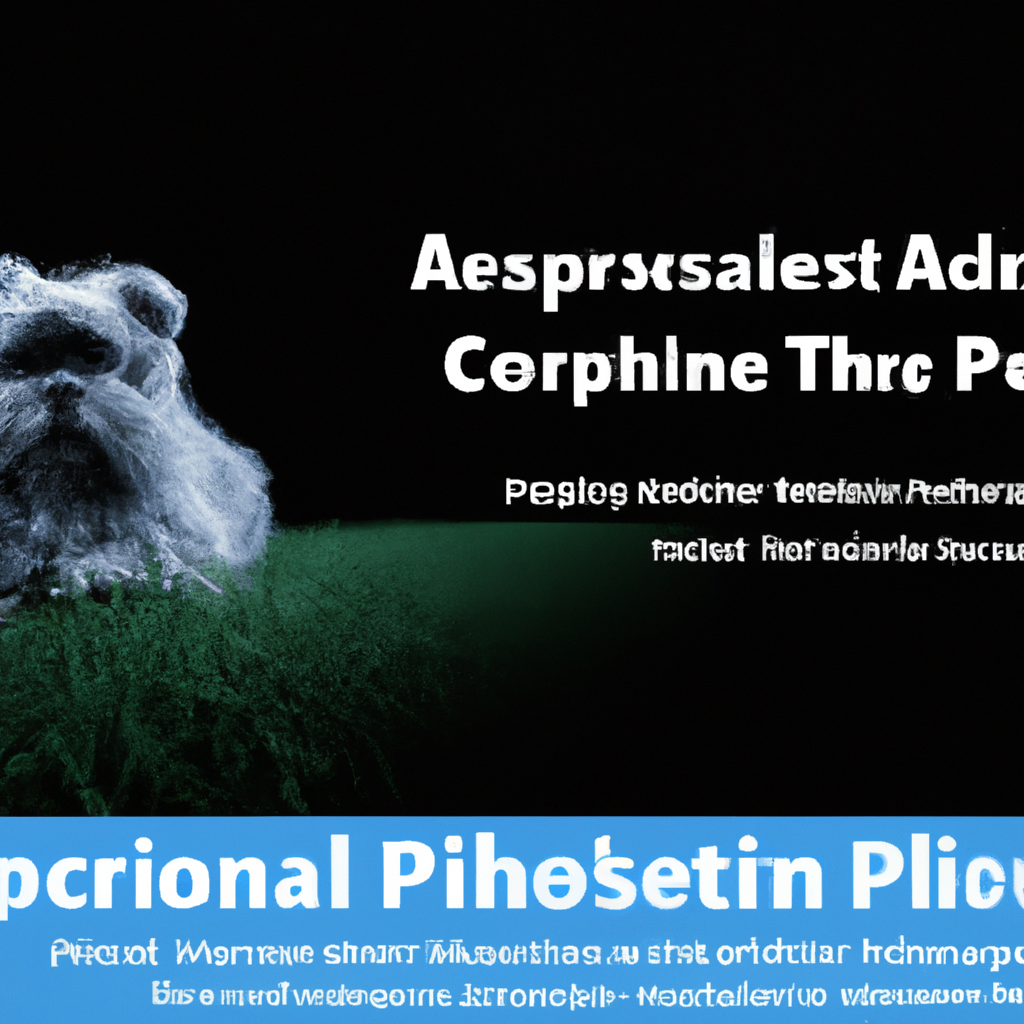Affenpinschers, like any other breed, are prone to certain health problems. These health issues can be caused by a variety of factors including genetics, diet, environment, and lack of exercise. Some common health problems in Affenpinschers include hip dysplasia, heart disorders, respiratory issues, and eye problems. Additionally, due to their small size and unique facial structure, they are also prone to dental issues and brachycephalic syndrome. It’s important for owners to be aware of these potential health issues in order to provide the best care for their Affenpinscher.
Understanding the Genetic Disorders in Affenpinschers
Affenpinschers, often referred to as “Monkey Terriers” or “Monkey Dogs” due to their distinct primate-like appearance, are a small breed of dog that originated in Germany. Despite their small size, these dogs are known for their bold and adventurous spirit. However, like many purebred dogs, Affenpinschers are prone to certain health problems, many of which are genetic in nature. Understanding these genetic disorders can help owners provide the best care for their Affenpinscher companions.
One of the most common health issues in Affenpinschers is hip dysplasia, a genetic disorder that affects the hip joint. This condition occurs when the hip joint doesn’t develop properly, leading to a loose fit between the ball and socket. Over time, this can cause painful arthritis and may even lead to lameness. Hip dysplasia is often hereditary, meaning it can be passed down from parent dogs to their puppies.
Another genetic disorder that can affect Affenpinschers is a condition known as patellar luxation. This is when the kneecap, or patella, dislocates or moves out of its normal position. Patellar luxation can cause discomfort and difficulty walking, and in severe cases, it may require surgical intervention. This condition is also often hereditary, and it’s particularly common in small dog breeds like the Affenpinscher.
Heart disease is another health concern for Affenpinschers. Specifically, they are prone to a condition called mitral valve disease, which affects the heart’s ability to pump blood effectively. This condition is often progressive, meaning it gets worse over time. While it can occur in any dog, it’s particularly common in small breeds and older dogs.
Affenpinschers are also at risk for certain eye conditions, including cataracts and progressive retinal atrophy (PRA). Cataracts can cause cloudiness in the lens of the eye, leading to impaired vision or even blindness. PRA is a degenerative eye disorder that also leads to blindness. Both of these conditions can have a genetic component, meaning they can be passed down from parent dogs to their offspring.
Lastly, Affenpinschers can be prone to a condition called brachycephalic syndrome, which is common in breeds with short noses and flat faces. This condition can lead to breathing difficulties and other respiratory problems. While it’s not strictly a genetic disorder, it’s a result of the physical characteristics that have been bred into these dogs.
While this list of potential health problems may seem daunting, it’s important to remember that not all Affenpinschers will develop these conditions. Many live healthy, happy lives with the right care and attention. Regular veterinary check-ups, a balanced diet, and plenty of exercises can go a long way in keeping an Affenpinscher healthy.
Moreover, if you’re considering getting an Affenpinscher from a breeder, it’s crucial to find a reputable one who tests their breeding dogs for these and other genetic disorders. A good breeder will be able to provide you with health clearances for both of the puppy’s parents, which can give you peace of mind about your new pet’s health.
In conclusion, while Affenpinschers can be prone to certain genetic disorders, understanding these conditions and their causes can help owners provide the best possible care for their pets. With the right care and attention, an Affenpinscher can lead a long, healthy, and happy life.
The Impact of Poor Nutrition on Affenpinschers’ Health
Affenpinschers, affectionately known as “Monkey Dogs,” are a small breed of dog that originated in Germany. These dogs are known for their playful and adventurous nature, making them a popular choice for families and individuals alike. However, like any breed, Affenpinschers are prone to certain health problems. One of the leading causes of these health issues is poor nutrition.
Affenpinschers, like all dogs, require a balanced diet to maintain their health. However, due to their small size, they have unique nutritional needs that must be met to prevent health problems. When these needs are not met, it can lead to a variety of health issues, including obesity, dental problems, and heart disease.
Obesity is a common problem in Affenpinschers, largely due to overfeeding or feeding them the wrong types of food. These dogs are small and do not require a large amount of food to sustain them. However, many owners make the mistake of feeding them the same amount of food as a larger breed, leading to weight gain. Obesity can lead to a host of other health problems, including diabetes, heart disease, and joint problems.
Dental problems are another common issue in Affenpinschers, often caused by a diet high in sugars and carbohydrates. These types of food can lead to plaque buildup on the teeth, which can cause tooth decay and gum disease if not addressed. In severe cases, dental problems can lead to more serious health issues, such as heart disease and kidney problems.
Heart disease is also a significant concern for Affenpinschers, particularly those that are overweight or have a poor diet. High-fat diets can lead to high cholesterol and high blood pressure, both of which can contribute to heart disease. Additionally, a lack of essential nutrients can weaken the heart muscle, making it more susceptible to disease.
The good news is that many of these health problems can be prevented with proper nutrition. A balanced diet for an Affenpinscher should include high-quality protein, healthy fats, and a variety of fruits and vegetables. It’s also important to limit their intake of sugars and carbohydrates to prevent dental problems.
Portion control is also crucial for preventing obesity in Affenpinschers. These dogs do not require a large amount of food, so it’s important to feed them smaller meals throughout the day rather than one large meal. This can help to keep their metabolism active and prevent weight gain.
In conclusion, poor nutrition can have a significant impact on the health of Affenpinschers. By providing them with a balanced diet and controlling their portion sizes, owners can help to prevent many of the common health problems associated with this breed. However, it’s always important to consult with a veterinarian to determine the best diet for your individual dog’s needs. After all, every Affenpinscher is unique, and what works for one may not work for another. With the right care and attention to their diet, Affenpinschers can live long, healthy lives.
The Role of Dental Diseases in Affenpinschers’ Health Problems
Affenpinschers, affectionately known as “Monkey Dogs,” are a small breed of dog known for their playful and adventurous nature. However, like all breeds, they are susceptible to certain health problems. One of the most common yet often overlooked health issues in Affenpinschers is dental disease.
Dental diseases in Affenpinschers can range from mild conditions such as gingivitis to more severe problems like periodontal disease. These conditions are not only painful for the dog but can also lead to more serious health problems if left untreated. The root cause of these dental diseases is often poor oral hygiene. Just like humans, dogs need regular dental care to maintain healthy teeth and gums.
Unfortunately, many dog owners overlook the importance of dental care, leading to a buildup of plaque and tartar on the dog’s teeth. This buildup can cause inflammation and infection in the gums, leading to gingivitis. If left untreated, gingivitis can progress to periodontal disease, a severe condition that can lead to tooth loss and even damage to the dog’s heart, liver, and kidneys.
Moreover, Affenpinschers are particularly prone to dental diseases due to their small size and the structure of their mouths. Their small jaws often lead to overcrowding of teeth, making it difficult to clean between them and increasing the risk of plaque and tartar buildup. Additionally, their flat faces can lead to misaligned teeth, further complicating oral hygiene.
The good news is that dental diseases in Affenpinschers are preventable with proper care. Regular brushing of the dog’s teeth can significantly reduce the buildup of plaque and tartar. It’s recommended to brush your Affenpinscher’s teeth at least two to three times a week, although daily brushing is ideal.
In addition to brushing, regular check-ups with a veterinarian are crucial in maintaining your dog’s oral health. A vet can perform a thorough dental examination and cleaning, removing any plaque or tartar that you may have missed. They can also identify early signs of dental disease, allowing for prompt treatment before the condition worsens.
Diet also plays a significant role in your Affenpinscher’s dental health. Feeding your dog a balanced diet that includes dry kibble can help clean their teeth as they chew. There are also specially formulated dental diets and treats available that can help reduce plaque and tartar buildup.
In conclusion, dental diseases are a common health problem in Affenpinschers, but they are preventable with proper care. Regular brushing, veterinary check-ups, and a balanced diet can all contribute to maintaining your Affenpinscher’s oral health. Remember, a healthy mouth is an essential part of a healthy dog. So, don’t overlook your Affenpinscher’s dental care; it’s a crucial aspect of their overall health and well-being.
Heart Diseases in Affenpinschers: Causes and Prevention

Affenpinschers, affectionately known as “Monkey Dogs,” are small, charming, and energetic dogs that are loved for their unique appearance and playful nature. However, like any other breed, Affenpinschers are prone to certain health issues, particularly heart diseases. Understanding the causes and prevention of these health problems can help you ensure your Affenpinscher lives a long, healthy, and happy life.
Heart diseases in Affenpinschers can be attributed to various factors. One of the most common causes is age. As Affenpinschers grow older, their heart muscles may weaken, leading to conditions such as congestive heart failure. This condition is characterized by the heart’s inability to pump blood efficiently, leading to fluid build-up in the lungs, liver, and other body tissues.
Genetics also play a significant role in the development of heart diseases in Affenpinschers. Some dogs are genetically predisposed to conditions like mitral valve disease, a condition where the heart’s mitral valve deteriorates, causing blood to flow backward into the heart. This can lead to a variety of symptoms, including coughing, fatigue, and difficulty breathing.
Diet and exercise are other crucial factors that can influence an Affenpinscher’s heart health. A diet high in fat and low in essential nutrients can lead to obesity, which puts extra strain on the heart. Similarly, a lack of regular exercise can lead to a sedentary lifestyle, contributing to weight gain and heart disease.
Now that we’ve discussed the causes, let’s shift our focus to prevention. While you can’t change your Affenpinscher’s age or genetics, there are several steps you can take to help prevent heart disease.
Firstly, a balanced diet is key. Ensure your Affenpinscher is eating high-quality dog food that is rich in essential nutrients and low in fat. This will help maintain a healthy weight and reduce the risk of obesity. Regular vet check-ups are also important to monitor your dog’s weight and overall health.
Exercise is another crucial aspect of prevention. Affenpinschers are energetic dogs that require regular physical activity. Daily walks, playtime in the yard, or even indoor games can help keep your Affenpinscher active and healthy. Regular exercise not only helps maintain a healthy weight but also strengthens the heart and cardiovascular system.
Regular vet check-ups are also essential in preventing heart disease. Your vet can monitor your Affenpinscher’s heart health and detect any early signs of heart disease. Early detection is key in managing heart disease and can significantly improve your dog’s prognosis.
Lastly, if your Affenpinscher is genetically predisposed to heart disease, your vet may recommend regular heart screenings. These screenings can help detect heart disease in its early stages, allowing for early intervention and treatment.
In conclusion, while Affenpinschers are prone to heart diseases due to factors like age, genetics, diet, and exercise, there are several steps you can take to help prevent these conditions. A balanced diet, regular exercise, regular vet check-ups, and heart screenings can all contribute to your Affenpinscher’s heart health. By understanding the causes and taking proactive steps towards prevention, you can help ensure your Affenpinscher lives a long, healthy, and happy life.
The Link Between Obesity and Health Issues in Affenpinschers
Affenpinschers, affectionately known as “Monkey Dogs,” are small, charming, and energetic dogs that are loved for their unique appearance and playful nature. However, like all breeds, Affenpinschers are prone to certain health issues, and one of the most common is obesity. The link between obesity and health problems in Affenpinschers is a topic that every owner should be aware of to ensure their furry friend lives a long, healthy life.
Obesity in Affenpinschers, as in humans, is often the result of a combination of factors such as overeating, lack of exercise, and genetic predisposition. These dogs are known for their hearty appetites and can easily gain weight if their diet and exercise are not properly managed. Moreover, some Affenpinschers may be genetically predisposed to obesity, making it even more crucial for owners to monitor their pet’s weight.
The consequences of obesity in Affenpinschers are far-reaching and can significantly impact their quality of life. One of the most immediate effects of obesity is the strain it puts on the dog’s joints. Affenpinschers are small dogs with delicate bone structures, and carrying excess weight can lead to joint problems such as arthritis. This can cause pain and discomfort, reducing the dog’s mobility and zest for life.
Furthermore, obesity can lead to a host of other health issues in Affenpinschers. Overweight dogs are at a higher risk of developing heart disease, diabetes, and certain types of cancer. These conditions can significantly shorten an Affenpinscher’s lifespan and lead to a decline in their overall health and wellbeing.
Obesity can also exacerbate existing health problems in Affenpinschers. For instance, this breed is prone to a condition known as brachycephalic syndrome, which affects dogs with short noses and can cause breathing difficulties. Excess weight can worsen these breathing problems, making it even harder for the dog to get the oxygen it needs.
The good news is that obesity in Affenpinschers is preventable and, in many cases, reversible. The first step is to ensure your dog is eating a balanced, portion-controlled diet. Avoid giving your Affenpinscher table scraps or too many treats, as these can quickly add up in calories. Instead, opt for high-quality dog food that is specifically formulated for small breeds.
Regular exercise is also crucial in preventing obesity in Affenpinschers. These dogs are energetic and love to play, so make sure they get plenty of physical activity each day. This can include walks, playtime in the yard, or even agility training.
Finally, regular vet check-ups are essential in monitoring your Affenpinscher’s weight and overall health. Your vet can provide personalized advice on diet and exercise based on your dog’s age, weight, and health status.
In conclusion, obesity is a serious health issue that can lead to a host of problems in Affenpinschers. However, with proper diet, regular exercise, and routine vet visits, you can help your Affenpinscher maintain a healthy weight and enjoy a long, happy life. Remember, a healthy Affenpinscher is a happy Affenpinscher!
The Influence of Lack of Exercise on Affenpinschers’ Health
Affenpinschers, affectionately known as “Monkey Dogs,” are a small but sturdy breed known for their distinctive appearance and playful, energetic nature. However, like all breeds, they are susceptible to certain health problems. One of the primary causes of health issues in Affenpinschers is a lack of exercise.
Affenpinschers are naturally active and require regular physical activity to maintain their health. When they don’t get enough exercise, they can develop a variety of health problems. One of the most common issues is obesity. Just like in humans, obesity in dogs can lead to a host of other health problems, including heart disease, diabetes, and joint problems.
Without regular exercise, Affenpinschers can also develop behavioral problems. They may become anxious, destructive, or overly aggressive. This is because exercise helps to burn off excess energy and provides mental stimulation, which can help to prevent these issues.
In addition to physical exercise, Affenpinschers also need mental stimulation to stay healthy. They are intelligent dogs that enjoy problem-solving and learning new things. Without enough mental stimulation, they can become bored and frustrated, which can lead to behavioral problems.
Exercise also plays a crucial role in maintaining a healthy immune system in Affenpinschers. Regular physical activity helps to boost the immune system and can help to prevent a variety of diseases. It also helps to keep the dog’s muscles and joints healthy and strong, which can help to prevent injuries.
However, it’s important to remember that not all exercise is created equal. Affenpinschers are a brachycephalic breed, which means they have a short nose and flat face. This can make them more susceptible to respiratory problems, especially in hot or humid weather. Therefore, it’s important to provide them with appropriate types of exercise that won’t put too much strain on their respiratory system.
For example, instead of going for a long run, an Affenpinscher might be better off with a brisk walk or a game of fetch. It’s also important to provide them with plenty of opportunities to rest and cool down, especially in hot weather.
In addition to regular exercise, a healthy diet is also crucial for preventing health problems in Affenpinschers. They are prone to overeating, so it’s important to monitor their food intake and ensure they are getting a balanced diet.
Regular vet check-ups are also essential for maintaining the health of an Affenpinscher. A vet can provide advice on the appropriate amount and type of exercise for your dog, as well as monitor their weight and overall health.
In conclusion, a lack of exercise can lead to a variety of health problems in Affenpinschers, including obesity, behavioral problems, and a weakened immune system. However, with regular, appropriate exercise, a healthy diet, and regular vet check-ups, these issues can be prevented. So, if you’re the proud owner of an Affenpinscher, make sure to keep them active and engaged to ensure they live a long, healthy, and happy life.
How Parasites and Infections Contribute to Affenpinschers’ Health Problems
Affenpinschers, affectionately known as “Monkey Dogs,” are a small breed of dog that originated in Germany. These dogs are known for their playful and adventurous nature, but like all breeds, they are susceptible to certain health problems. One of the main contributors to health issues in Affenpinschers is parasites and infections.
Parasites are organisms that live on or in a host organism and get their food from or at the expense of their host. In dogs, common parasites include fleas, ticks, heartworms, and intestinal worms. These parasites can cause a range of health problems in Affenpinschers, from mild discomfort to severe illness.
Fleas, for instance, are not just a nuisance. They can cause allergic reactions, transmit tapeworms, and even lead to anemia in severe infestations. Ticks, on the other hand, can transmit diseases like Lyme disease and Rocky Mountain spotted fever. These diseases can cause a range of symptoms, from fever and fatigue to joint pain and neurological problems.
Heartworms are another serious concern. These parasites are transmitted by mosquitoes and live in the heart and blood vessels of infected dogs. Heartworm disease can cause heart failure, lung disease, and damage to other organs in the body. It’s a serious and potentially fatal disease, but it’s also preventable with medication.
Intestinal worms, such as roundworms, hookworms, and whipworms, can also cause health problems in Affenpinschers. These parasites live in the digestive system and can cause symptoms like diarrhea, weight loss, and anemia. In severe cases, they can cause a blockage in the intestines.
Infections are another common cause of health problems in Affenpinschers. These can be caused by bacteria, viruses, fungi, or other microorganisms. Some of the most common infections in dogs include ear infections, skin infections, urinary tract infections, and respiratory infections.
Ear infections can be particularly problematic in Affenpinschers because of their floppy ears. These can trap moisture and create a perfect environment for bacteria and yeast to grow. Symptoms of ear infections include scratching at the ears, head shaking, and a foul odor.
Skin infections can also be common, especially in dogs with allergies or other skin conditions. These can cause symptoms like itching, redness, and sores. Urinary tract infections can cause symptoms like frequent urination, straining to urinate, and blood in the urine. Respiratory infections can cause coughing, sneezing, and difficulty breathing.
Infections and parasites are a significant cause of health problems in Affenpinschers, but many of these issues can be prevented or treated with proper care. Regular vet check-ups, a healthy diet, and good grooming practices can go a long way in keeping your Affenpinscher healthy. It’s also important to keep your dog’s environment clean and to use preventative medications for parasites as recommended by your vet.
In conclusion, while Affenpinschers are generally a healthy breed, they are susceptible to health problems caused by parasites and infections. By understanding these risks and taking steps to prevent them, you can help ensure your Affenpinscher lives a long, healthy life.
The Effect of Aging on the Health of Affenpinschers
Affenpinschers, often referred to as “Monkey Dogs” due to their distinct facial features, are a small breed of dog that originated in Germany. These dogs are known for their playful and adventurous nature, making them a popular choice for families and individuals alike. However, like all breeds, Affenpinschers are susceptible to certain health problems, particularly as they age. Understanding these health issues can help owners provide the best care for their furry friends.
Aging is a natural process that affects all living beings, including our beloved Affenpinschers. As these dogs grow older, they may experience a decline in their physical and mental health. This decline can manifest in various ways, such as decreased energy levels, changes in behavior, and the onset of age-related diseases.
One common health problem in aging Affenpinschers is joint issues, such as arthritis. This condition is characterized by inflammation and pain in the joints, which can limit the dog’s mobility and overall quality of life. Arthritis is often a result of wear and tear on the joints over time, but it can also be influenced by factors such as diet, exercise, and overall health.
Another health issue that can affect aging Affenpinschers is heart disease. This can take various forms, such as congestive heart failure, where the heart is unable to pump blood effectively, or heart murmurs, which are abnormal sounds caused by turbulent blood flow in the heart. Heart disease in dogs can be influenced by factors such as genetics, diet, and lifestyle, and it can lead to serious complications if not managed properly.
Aging Affenpinschers may also be prone to eye problems. Cataracts, for instance, are a common issue in older dogs. This condition is characterized by a clouding of the lens in the eye, which can impair vision and, in severe cases, lead to blindness. Glaucoma, another eye condition, is characterized by increased pressure in the eye, which can cause pain and vision loss.
In addition to these physical health problems, aging can also affect an Affenpinscher’s mental health. Cognitive Dysfunction Syndrome (CDS), similar to Alzheimer’s in humans, is a condition that can affect older dogs. Symptoms of CDS can include confusion, disorientation, changes in sleep patterns, and decreased interaction with family members. This condition can be distressing for both the dog and the owner, but there are treatments available that can help manage the symptoms.
While these health problems can be concerning, it’s important to remember that they are not inevitable. Many age-related health issues can be managed or even prevented with proper care. Regular veterinary check-ups are crucial for early detection and treatment of health problems. A balanced diet and regular exercise can also go a long way in maintaining a dog’s health as they age.
In conclusion, while aging can bring about various health problems in Affenpinschers, these issues can often be managed with proper care and attention. By understanding the potential health problems that can affect their pets, owners can take steps to ensure that their Affenpinschers live long, healthy, and happy lives.In conclusion, the health problems in Affenpinschers can be attributed to their genetic predisposition, lifestyle, and diet. They are prone to certain genetic disorders like hip dysplasia, heart defects, and respiratory issues. Their small size also makes them susceptible to dental problems and injuries. Additionally, an unhealthy diet and lack of exercise can lead to obesity and related health issues. Regular vet check-ups and a balanced lifestyle can help manage and prevent these health problems.





